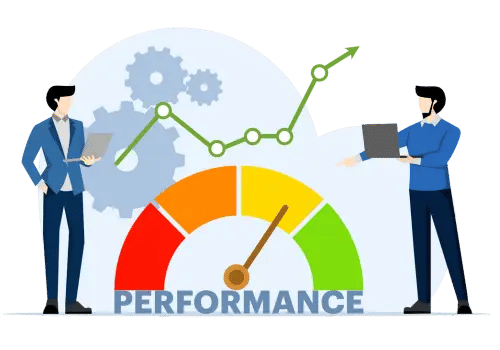
A Performance Improvement Plan (PIP) is a valuable tool that focuses on employee development, enhances performance, and strengthens organizational growth. It’s not just about identifying weaknesses but about providing an actionable roadmap that leads to positive results.
This blog explores the top unique benefits of implementing a PIP that can contribute to both personal and organizational success.
A Performance Improvement Plan (PIP) helps employees enhance their performance by setting clear goals, providing support, and tracking progress. It fosters growth, accountability, and skill development while aligning individual goals with company objectives. PIPs improve morale, boost employee retention, and turn challenges into opportunities, benefiting both employees and the organization.
What is a Performance Improvement Plan (PIP)?
A Performance Improvement Plan (PIP) is a structured process used by organizations to address and correct an employee’s performance gaps. It involves setting clear, achievable goals and providing the necessary resources and support for the employee to meet those expectations. The goal of a PIP is not punitive but rather a way to help employees develop and grow in their roles, ultimately aligning their success with that of the company.
Unique Benefits of a Performance Improvement Plan for Growth
A Performance Improvement Plan (PIP) drives growth by clarifying expectations, fostering skill development, and aligning employee goals with organizational success.
- Enhances Individual Focus and Alignment
A thoughtfully designed PIP directs employees’ attention to key areas for improvement, making it easier for them to focus on what truly matters for their growth. By breaking down complex tasks into manageable steps and setting clear objectives, employees can channel their energy into improving those areas that matter most. This focus allows employees to avoid distractions and create a path toward achieving their potential.
Employees know exactly where to direct their efforts.
Alignment between employee goals and organizational objectives increases. - Cultivates a Growth Mindset in Employees
Rather than focusing on underperformance, a PIP fosters a growth mindset. Employees begin to see the process as an opportunity to improve, acquire new skills, and take on more responsibilities. This mindset shift leads to increased job satisfaction, higher levels of engagement, and long-term growth within the company.
Adopting a growth mindset empowers employees to tackle challenges with confidence, helping them improve and reach their full potential.
Motivates employees to push through obstacles and grow with the company. - Reinforces Company Culture of Accountability
A Performance Improvement Plan can create a more accountable workforce. By setting clear goals and tracking progress, employees understand the importance of meeting deadlines and achieving results. This process fosters a stronger sense of personal responsibility and promotes a culture where performance is measured, and accountability is expected at every level.
Employees become more responsible for their own success.
Accountability helps foster a high-performance culture within the organization. - Reduces Employee Stress with Structured Support
Employees underperforming often feel stressed and overwhelmed. A PIP helps alleviate these feelings by providing a structured, step-by-step approach to improvement. Rather than being left to figure things out alone, employees receive consistent feedback, clear direction, and the tools they need to succeed. This structured support helps employees feel more in control and confident in their ability to meet expectations.
Reduces anxiety by providing clear, actionable steps for improvement.
Continuous support helps employees feel more empowered. - Prevents Future Performance Issues
Implementing a PIP can prevent recurring performance issues. By identifying and addressing problems early, managers can provide timely interventions and ensure that the same mistakes are not repeated. This proactive approach helps employees grow from their mistakes and prevents similar issues from affecting their performance in the future.
Early intervention leads to long-term solutions, not just temporary fixes.
Helps prevent the escalation of performance issues into bigger problems. - Encourages Self-Reflection and Ownership
During a PIP, employees are encouraged to self-reflect on their performance, behavior, and work habits. Self-assessment motivates employees to take responsibility for their growth, fostering a sense of ownership and commitment to their own development. As a result, they become more motivated to take initiative, solve problems independently, and seek out opportunities for personal growth.
Encourages employees to take ownership of their actions and outcomes.
Self-reflection leads to increased self-awareness and personal responsibility. - Boosts Team Morale and Motivation
When employees see that their colleagues are given the opportunity to improve through structured PIPs, it boosts overall team morale. It creates an environment where growth is encouraged, and no one is left behind. This not only motivates the individual but also inspires the entire team to strive for excellence, knowing that support is available for everyone.
Enhances teamwork by creating a shared commitment to growth.
Fosters a supportive environment where team members are motivated to help each other succeed. - Improves Leadership and Management Skills
PIPs require managers to be actively involved in tracking progress, providing feedback, and adjusting goals. This process enhances the manager’s leadership and communication skills, which can benefit the entire organization. Managers learn how to motivate, coach, and guide their employees more effectively, which has a direct impact on team performance.
Managers develop better coaching and leadership abilities.
Promotes a collaborative approach to performance management. - Enhances Employee Retention
When employees receive a clear path to success and see that the company is willing to invest in their growth, they are more likely to stay with the organization. When employees feel valued and invested in their growth, they are more likely to stay with the company rather than seek opportunities elsewhere. This ultimately leads to improved employee retention and reduces the costs associated with turnover.
Employees are more inclined to remain with a company that actively invests in their development and growth.
Reduces turnover by improving job satisfaction and engagement. - Creates a Stronger Connection to Company Goals
By aligning individual performance with organizational goals, a PIP helps employees understand how their work directly impacts the company’s success. This creates a deeper connection between employees and the company’s mission. As employees see how their individual contributions lead to larger achievements, their sense of purpose and motivation increases.
Enhances alignment between employee goals and organizational objectives.
Employees develop a stronger sense of connection to the company’s mission and goals, feeling that their work truly matters.
Why a PIP is Crucial for Growth and Success
A well-executed Performance Improvement Plan is more than just a corrective measure; it’s an investment in an employee’s future. It provides clear direction, support, and opportunities for growth. When implemented thoughtfully, a PIP fosters an environment where employees can thrive, reach their full potential, and contribute meaningfully to the organization’s success.
Not only does a PIP benefit the individual employee, but it also strengthens the overall workforce. Employees who are given the resources to improve are more likely to stay engaged, develop new skills, and take on additional responsibilities. This leads to a more productive and motivated team, ready to meet both short-term and long-term business objectives.
Conclusion
The benefits of a Performance Improvement Plan are clear. When done correctly, a PIP can lead to improved performance, higher morale, and stronger organizational outcomes. It ensures that employees are aligned with company goals, provides them with the tools they need to succeed, and fosters a growth-oriented culture.
By creating a well-designed PIP, you’re not just improving performance — you’re shaping a brighter future for your team. By addressing performance issues early and providing ongoing support, you can transform challenges into opportunities for success.
Are you ready to implement a Performance Improvement Plan in your organization? Book a demo with us today and learn how we can help you create customized plans that boost growth and success.
Join Our Creative Community
Frequently Asked Questions
What is a Performance Improvement Plan (PIP)?
A PIP is a structured process that helps employees improve performance by setting clear goals, offering support, and tracking progress over a defined period. It provides clarity and direction for both the employee and employer.
How does a PIP contribute to the development of employees?
A PIP provides employees with the resources and structure they need to improve, fostering motivation and aligning their goals with company objectives. It fosters career development and boosts overall job fulfilment.
How do I implement a PIP?
Implement a PIP by setting clear expectations, defining improvement goals, offering support, and scheduling regular check-ins to track progress. Ensure the plan is realistic and achievable to maintain employee engagement.
How long does a PIP last?
A PIP typically spans from 30 to 90 days, based on the specific performance challenges and the improvement goals established. The length can be adjusted based on progress and specific circumstances.
What happens if an employee does not meet the goals of a PIP?
If goals are not met, further actions like reassignment, demotion, or termination may be considered. The focus should always remain on providing support for improvement, with the aim of helping employees succeed.




_JiluXJRGNl.svg)



















